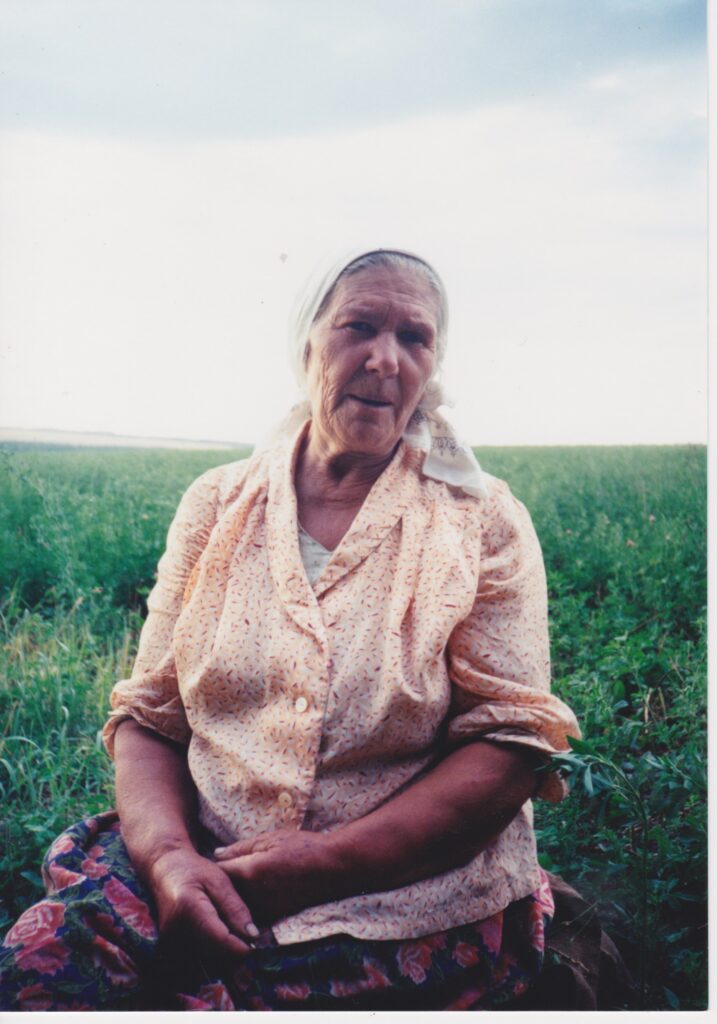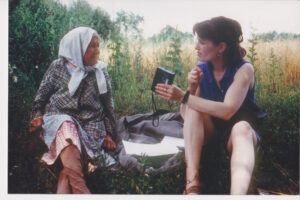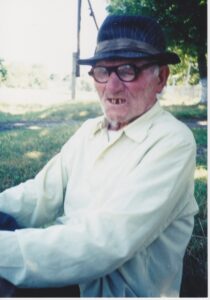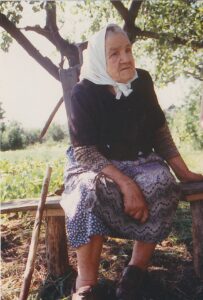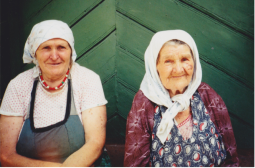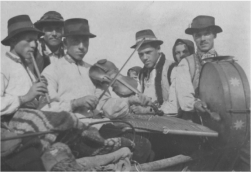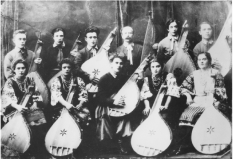Polishchuk Vira, b. 1919
Vira Polishchuk [patronymic absent in the original] (Kharkiv region)
—When you were a little girl, did the startsi come to your village?
Vira: I know they used to come. Our neighbors were such a family. There was a blind woman in their family and she went out asking for alms. She got married at some point, but something happened. Around 1947 she was in prison in Kharkiv. He put her in prison, and he himself…, no, he was with her. I don’t know who he was. He disappeared when he was taken away from her, and she came here and told her story. Someone picked her up. She was a blind woman sitting outside. She had a sister here, and she [the blind woman] had a dream. She said in the dream she was sitting outside and saw Maria sweeping the snow. Maria left, and blind woman remained, sitting there. Then Maria came up to her, told her that she was her sister Maria, and took her home. They lived here. The startsi would come here from Vodolaha. They were blind. They didn’t do anything but ask for alms outside the church on Easter when people would go to ask for blessings on the holiday bread. People would give them something.
—Did they sing songs when asking for alms?
Vira: Yes, and if you gave her something, she would say or sing a prayer. She was a good woman. Her name was Fedosia and she lived close to our house. She died. Her niece sent her to the nursing home, and she died there.
—Was Fedosia older than you?
Vira: Of course. Fedosia Oleksiienko was a starchykha.
—Was her husband blind, too?
Vira: No, he could see and was her guide. Then he was taken away from her and he was no longer here.
—Did the police take him away?
Vira: Who knows. Someone on the market took him away. Then she found an old man who was a little wacky. You know, not everyone would be a guide to a blind person, but he did. Then he died. And then later on the startsi were cleared away, gone, so they went door-to-door.
—Why were they cleared away?
Vira: They were liquidated. The authorities were ashamed that they were beggars. They were, I can’t say for sure, sent somewhere. [The authorities] would find out their information if they had no family, and so they somehow… they were gone. Now we live in fear because you don’t know who the person is [with whom you are talking]. Nowadays, there are many people who steal. It is frightening.
—Did the person who was arrested sing with her on the market?
Vira: I don’t know.
—When they came to visit her here, what did they do?
Vira: They had a friendship. I know there was a blind man from Vodolazy whose wife used to bring him everywhere. He and Fedosia’s man would get together, have a drink, and sing religious and non-religious songs.
—Do you remember any?
Vira: No.
—Have you ever seen them play musical instruments?
Vira: No. No. This blind man from Vodolaha played harmonia.
—Did he go door-to-door in the villages?
Vira: Perhaps he did, close to where he lived. He used to come here just as a friend.
—Were there any bandura players before the war, perhaps at concerts?
Vira: No.
Vira Polishchuk
—Why were they cleared away?
Vira: They were liquidated. The authorities were ashamed that they were beggars.
They were, I can’t say for sure, sent somewhere [unclear to where].
